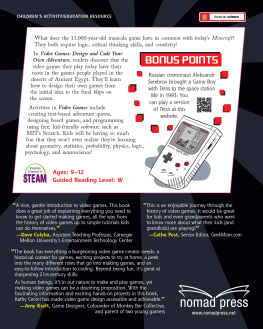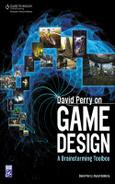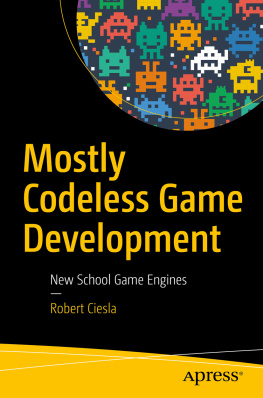THE TETRIS EFFECT
Tetris on the Gameboy has been the major hand-held game of my life, and its still a daily addiction for me. I take maybe 200 flights a year to random places, long and short, and Gameboy Tetris is an excellent way to spend some of the time. This morning I awoke tired so I played a couple of games of Tetris to get my neurons going and I was then wide awake; I do this frequently. The Tetris Effect is a great read on a game that has hypnotized my brain and probably yours too.
Steve Wozniak, co-founder of Apple
The author provides a meticulous accounting of the rise of TetrisFor those fascinated with the way video games are created and intrigued by the history of early computers, the book will provide great entertainment, just like the gameAn all-inclusive history behind one of the most popular video games ever.
Kirkus Reviews
THE TETRIS EFFECT
THE COLD WAR BATTLE FOR THE WORLDS MOST ADDICTIVE GAME
DAN ACKERMAN

CONTENTS




PART I


1

THE GREAT RACE
T he aeroplane lurched into a final descent toward Moscow. Henk Rogers gripped the worn armrest wedged against him. Years of circling the globe chasing business deals and new technologies had left him feeling like a well-travelled citizen of the world, but this was something altogether different.
He looked around the shaking cabin with some trepidation. He had spent the last eleven hours on a flight jointly operated by Japan Airlines and Aeroflot, the notorious Soviet state airline that allowed the Russians a hand in the business of actually carrying paying passengers across the Pacific and over the Russian continent.
Eyes fixed on the seatback in front of him, he asked himself what was worse: going in blind to a strange city in a strange country without speaking a word of the language, or agreeing to enter one of the worlds most notorious international flash points under false pretences?
The paperwork for his tourist visa to Moscow felt heavy in his jacket pocket. Rogers had no doubt that if he was caught lying about his reasons for visiting the USSR, the powerful business interests bankrolling his mission would cut him loose without a thought. They had built enough plausible deniability into the deal that hed appear to be just another economic opportunist, looking to slice off a piece of Soviet prosperity for himself at the expense of the people.
He wondered how what should have been a simple software licensing deal had taken him from Japan, where he had lived for years, to the USSR, tasked with chasing down a shadowy arm of the Soviet government while staying one step ahead of a pair of powerful corporate mercenaries who would stop at nothing to steal away the prize.
To fly into the heart of the Soviet Union in the late 1980s was to take an uncertain step behind the feared Iron Curtain, a political and psychological barrier that kept 280 million citizens locked away from the Western world. Secret police ears were still everywhere in Moscow during the final years of the Cold War. Visiting tourists, businessmen, and even journalists could expect their phones to be tapped and hotel rooms to be bugged, or even to be tailed around town by a boxy Lada sedan, the preferred vehicle of dark-suited government minders.
Yet a new reality had started to replace the traditional East-versus-West rivalry. A spirit of glasnost, or openness, was the Communist Partys official marching order of the day, and with it came an influence both craved and fearedforeign money.
It was into this charged environment that Henk Rogers flew on February 21, 1989. He was one of three competing Westerners descending on Moscow nearly simultaneously. Each was chasing the same prize, an important government-controlled technology that was having a profound impact on people around the world.
That technology was perhaps the greatest cultural export in the history of the USSR, and it was called Tetris. This deceptively simple puzzle game had circled the globe numerous times in multiple formats before the government realized it was not only a rare cross-cultural Cold War triumph but also an untapped source of much-needed cash.
Street after street of identical grey slab buildings flew by the window of Rogerss taxi on his way into the heart of Moscow from Domodedovo International Airport. Could this really be the epicentre of the fearsome Soviet empire? Long blocks of poured concrete high-rises were broken up by occasional flashes of brilliance, from Saint Basils Cathedral to the Triumphal Arch, shadows of the citys history as a hub of art, architecture, and even commerce.
And it was commerce that had brought him here, despite his tourist visa. Rogers hoped the chequebook in his pocket and the promise of a hefty bankroll from his unofficial corporate sponsors would be enough to smooth over any ruffles with the Soviet government if his legal status became an issue.
What could possibly go wrong? After all, he was only entering one of the most closed-off societies on earth, looking to coax an Orwellian bureaucracy into dropping its current well-connected partners in favour of an uninvited guest. But he suspected the deal he had to offer might be the exact tool he needed to drill through the impenetrable wall of no he expected from the Russians.
Despite the military parades and positive state-run media reports, the Soviet empire was hanging by a thread. A brief era of government-sponsored prosperity in the late 1970s and early 1980s was over. This was a time of breadlines and frustrated citizens with little money and even less to spend it on.
One-half of the USSRs bureaucracy was tasked with luring hard currency behind the frayed Iron Curtain; the other half was equally adamant in its mission to protect the hermetically sealed hierarchy of local privilege and power, by any means necessary. It was as if the country had put up a sign in its front garden that read Open for Business, and beneath it someone had scrawled, Now, go away!
In less than three years, the USSR would be gone, dissolved by Mikhail Gorbachev, the eighth and final leader of the Soviet Union. Even now, the Cold War practices of spycraft and espionage were slowly being replaced, or at least augmented, by the cutthroat capitalism of international business deals. Intellectual property replaced state secrets as the intangible product to be fought over, bought, sold, and even stolen.
Rogers flipped through his pages of handwritten notes as the taxi sputtered toward his hotel. Even securing a room reservation had been a minor victory: customer service remained a novel idea in Russia (a situation some would say has changed little in the twenty-five years since).
But there were bigger problems on his mind. The pages of his notebook contained smatterings of conversational Russian, mostly in the form of simple questions, some back-of-the-envelope calculations on sales and royalty numbers, and a single name, circled for emphasis: Alexey Pajitnov.
Next page




![Emanuele Feronato [Emanuele Feronato] - Flash Game Development by Example](/uploads/posts/book/120345/thumbs/emanuele-feronato-emanuele-feronato-flash-game.jpg)






